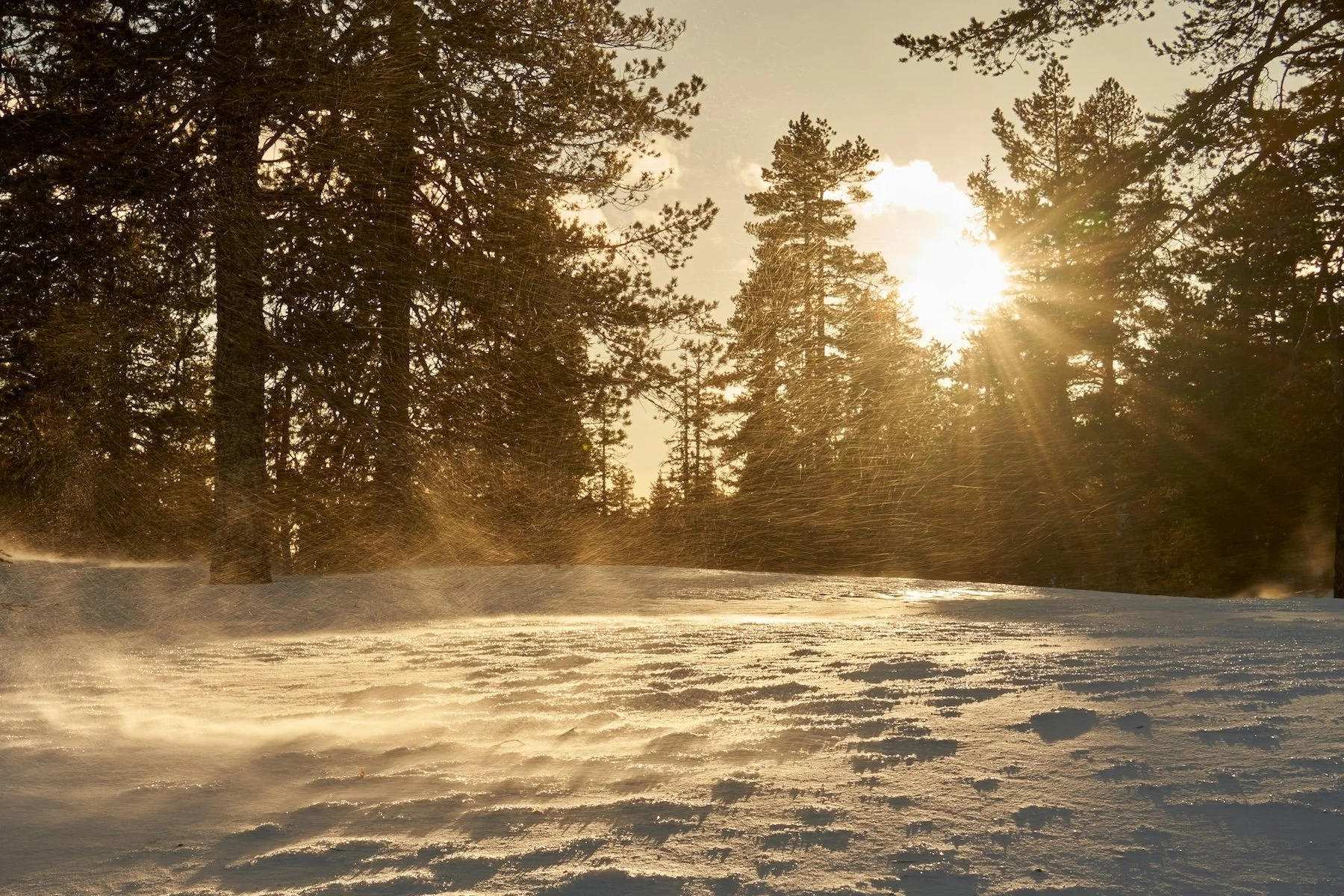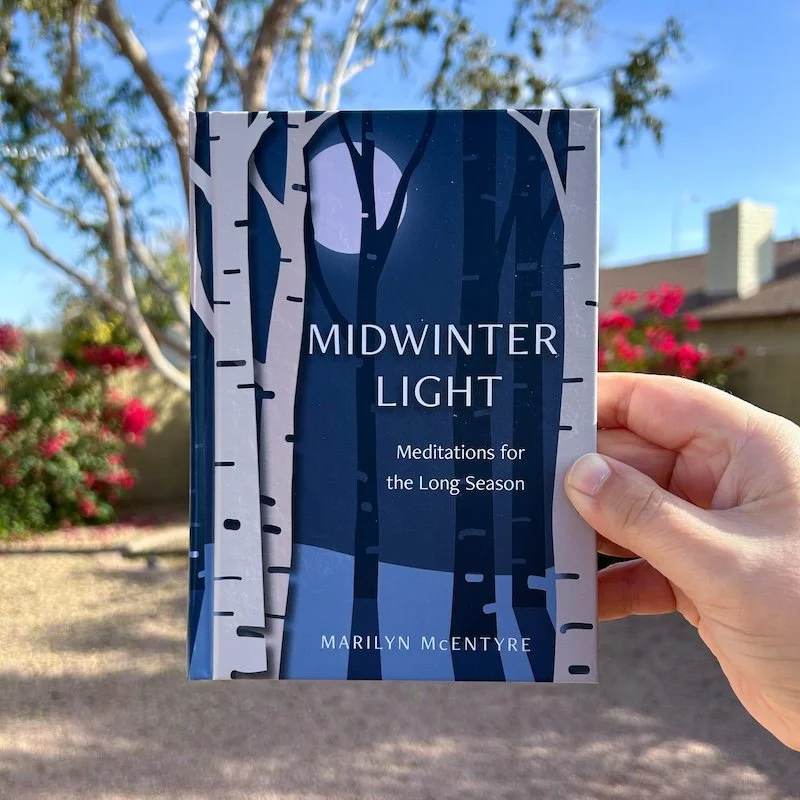Midwinter Light
We’re just past the longest night of the year, friends. Depending on where you live, it may still feel pretty dark, even unbearably so, but here’s the truth: from now until June, we get more and more daylight, day by day by day.
Here in Arizona, our seasons are basically inverted. Each summer, while the rest of you are out enjoying the sunshine and every God-blessed growing thing, we desert-dwellers hunker down and hibernate (or flee to California) for mere survival. It’s right around All Saints’ Day that we emerge Lazarus-like, pasty-skinned and more than a little disoriented. We greet our neighbors. We go for a walk. We say to ourselves, I could get used to this.
Just like everyone else does in the spring.
Midwinter Light: Meditations for the Long Season (Broadleaf) is a new collection of “winter poems” with reflections by Marilyn McEntyre. The poems and short essays here help us to notice all that is vibrant and real and good, learning “to live lives of radical amazement” even when our landscapes and our very lives seem marked by desolation. McEntyre writes:
“Winter makes us see differently. Noticing is rooted in desires so easily satisfied in spring we barely feel them—for color, for movement, for the sound of birds, and things that bloom. On a walk in midwinter, we experience solitude in a different key. We are surrounded by reminders of mortality and loss, by the absence of what is lush and vivid. We are clothed in layers and aware of our bodily needs in new ways. And the quiet, sometimes, is palpable. It is a good time for prayer: the veil between this dimension and the next seems to have thinned.”
It occurs to me that summers in Arizona—like winters elsewhere—offer us similar opportunities to see differently, if we let them be our teachers. Go for a drive out of town in July. Even the most spectacular mountain vistas appear devoid of life, epic “reminders of mortality and loss.” Everyone who lives here knows better than to go for a drive in the summer without plenty of drinking water—more than we can imagine we’ll need. It doesn’t take much going wrong out there to put us on the precipice of real peril.
The writings of Native authors like Joy Harjo and N. Scott Momaday have helped me to see the desert Southwest with new eyes. The Desert Botanical Garden has helped too, by gathering up all the vibrant and varied flora of the Sonoran desert in one concentrated and inviting place. Moving through the garden, from cacti and succulents to wildflowers and grasslands and forests, we do well to remember: all of this exists out there, in the wild, all around us—even in summer. It makes sun-scorched road trips in Arizona more enchanting, knowing that. You start noticing the mesquite trees growing up along dry riverbeds, or how one kind of cactus gives way to another as we gain elevation. You learn to pay attention. You learn to delight in subtleties.
In her reflection on the Robert Francis poem “Blue Winter,” McEntyre comments:
“We are designed for levels of subtlety most of us rarely achieve—able to distinguish tones and weights and sizes as well as colors with remarkable nuance. From violinists to painters to botanists to physicians probing an abdomen for information, we recognize and measure excellence by that capacity for registering subtlety and receiving fine-tuned information. In Moby-Dick, Herman Melville’s Ishmael muses, ‘Why then do you try to enlarge your mind? Subtilize it!’ One way to consider our calling as beings who are ‘fearfully and wonderfully made’ and exquisitely finely tuned is that: we are called to notice, and notice more, to distinguish and discern and imagine. Subtilizing our minds might make us more compassionate, less quick to judge, less inclined to dismiss, more careful about how we apply categories.”
For loved ones in Pennsylvania and the upper Midwest, I know there’s snow on the ground these days. I know it’s still getting dark much earlier than you’d like. Your hands are cracked and your lips are chapped from the shoveling.
But even now, today, right where you are—and here, during the summer—may we call to mind, as McEntyre reminds us, that “we live during givenness, drenched in grace by a Creator and created order that summon us in every ordinary thing to the threshold of mystery where praise is fitting.”
Merry Christmas, friends.

